Meeting in the Middle: When Being Pro-life and a Feminist Intersect
Destiny Herndon De La Rosa takes a deep breath in. Her voice shifts from its fast and energetic tone to a more slow and careful pace as she recalls attending the Women’s March in 2018. She takes me back to the moment when she was getting ready to leave her house, sign in hand and shoes laced up. Her husband warned her, “take your business card and put it in your boot in case you get knocked unconscious, so they can identify the body.” That’s when her nerves buzzed in full force.
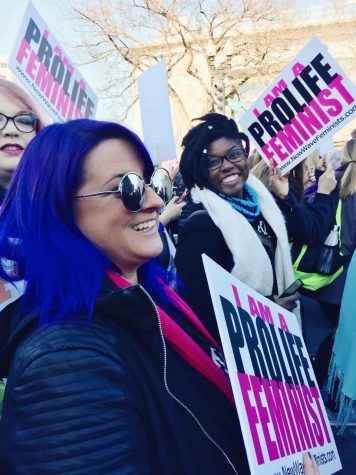
For most, the experience of attending the 2017 Women’s March was an exciting opportunity to protest the patriarchy. It was a march of freedom, a march to celebrate, a march to call for change. But for Destiny, one of the founders of the Texas-based Pro-life feminist organization, New Wave feminists, a pro-life organization dedicated to keeping every human free from violence including the unborn child, going into the march felt differently.
Days after the Women’s March an article titled, “Pro-life women banned from anti-Trump Women’s March on Washington,” came out, exposing points of tension in the feminist movement. Despite a claim of inclusivity, pro-lifers who also identify themselves as feminists and want to be part of the movement have not been welcomed and in some cases have even faced hostility. After the Women’s March in 2019, an article published in The Atlantic examined the conflict further. Even though many self-described pro-life feminist organizations signed up to be sponsors and march with the Women’s March, they were removed from the march’s official list of supporters because of their views against abortion.
Pro-life women who had planned on attending felt hurt by the hostility from pro-choice supporters attending the march. A Vox article exploring the conflict between pro-lifers and pro-choicers at the Women’s March included the opinion of Kristina Hernandez, Director of Communications for Students for Life of America. She said, “We are anti-abortion, but we’re also pro-woman. We want to be compassionate and open to dialogue on the other side.”
The common misperception that it’s only oppressive old straight white men who don’t believe in abortions contributes to a lot of pro-life women feeling misunderstood at places like the Women’s March. In reality, although a large number of pro-lifers are men, according to the American Self-Identified Position on Abortion 2020 demographic, around 46% of Americans are Pro-life. 41% of those people are women. Additionally, abortion restrictions and laws set in place in the last few years in Georgia, Alabama, Kentucky and Louisiana have been largely supported by women and were women-initiated.
To some, Amy Coney Barrett, who was confirmed as the newest Supreme Court Justice on October 26, is a poster child for women’s rights. As one of the youngest justices to ever be confirmed, her accomplishments are widely recognized. She is, by all intents and purposes, a woman whose success has been unimpeded by the glass ceiling.
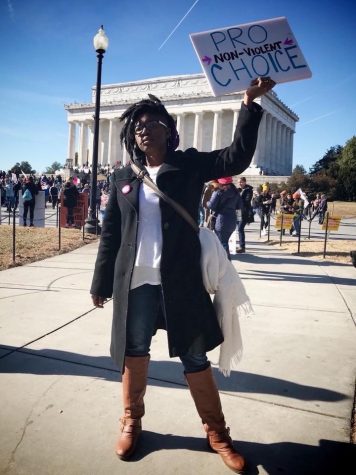
At the same time, Justice Barret has never made a secret of her pro-life values, which are largely informed by her Catholic faith. For many women, Justice Barrett presents an enigma of values. Her stance on abortion is viewed by many as oppressive and antithetical to women’s rights. “She’s a powerful woman even though I don’t agree with anything she says. She can talk for herself, and I don’t know if she’s the breadwinner for her family, but she’s making money.” Remarked Reema Rafifar, one of the co-heads of the Politics in Action club at Westridge.
Barrett’s confirmation has shed more light on the pro-life feminist movement. Although still rare in the very left-leaning California, over the last few years, pro-life feminism has been a rapidly growing idea. Organizations such as Feminists For Life and Rehumanize International have continued to pop up in recent years. Destiny Herndon De La Rosa said, “I knew that I was pro-life which kind of made me feel at odds with the feminist movement. They’ve made it very clear that being pro-choice is synonymous with feminism. I think for me it was just like, well, I mean if we’re truly feminists that’s rooted in rebellion, right? So, if they’re saying we can’t sit at their table, let’s build our own table.”
The definition of feminism has shifted over time and continues to shift. Initially, women’s rights activists like Elizabeth Cady Stanton and Susan B. Anthony opposed abortion, a standpoint that today might be antithetical to the modern mantra of “My Body, My Choice.” Because of the way feminism has been defined and/or redefined, what’s considered “legitimate” feminism differs from one generation to the next. Even more so, competing values, especially for women who have more conservative or right-leaning opinions often exclude them from mainstream feminism. A Washington Post article quotes Pamela Merritt, co-founder of Reproaction, an activist group that works to expand access to abortion. To Merrit, being a “pro-life feminist” is like saying you are a “vegan who likes chicken.”
Tension between reproductive rights and feminism traces back to the second wave of feminism in the 1960s when women embraced birth control as a way to demonstrate autonomy over bodies and their lives. This led to an unprecedented sexual revolution for women. Another landmark event in the reproductive rights of women was the 1973 Supreme Court case of Roe v. Wade. The Supreme Court ruled that access to safe and legal abortions was a constitutional right.
As birth control and abortion became less dangerous and more accessible, it gave women the opportunity to choose their own futures unimpeded by an unwanted pregnancy. But the main question that continues to swarm around the entire pro-choice and pro-life movement is, are pro-life and pro-choice values mutually exclusive?
While abortion rights continue to be an often contentious topic, what many don’t understand is that the pro-life vs. pro-choice movement and beliefs all fall on to a wide-ranging spectrum. Oftentimes the media presents the hyper-polarized ends of the spectrum but doesn’t necessarily focus on the large number of those who fall somewhere more in the middle, those like Herndon De La Rosa. Herdon De La Rosa doesn’t necessarily want a law banning abortion, but she wants to provide women with the resources they need to not get one. On the other hand, there are women who would never consider getting abortions themselves, but still want other women to have that choice. According to a Vox survey on abortion policy published in April of 2015, 21% of the over 1000 participants said they were neither pro-life nor pro-choice, while 18% percent said they were both.
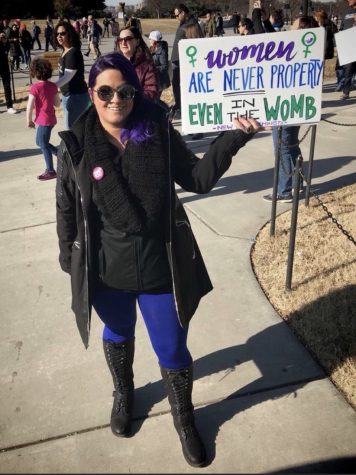
For many people, their views on abortion move on the spectrum after having kids of their own. “I grew up where pro-choice was the norm. That was the family kind of belief. And then being a feminist, I figured I’m going to hold the rights of a woman over the rights of a developing fetus. But now that I’ve had kids, I know my personal beliefs have changed. Although I want to preserve the right to an abortion, I would never have an abortion just because I see what that beginning of life develops into.” said Jennifer Irish, a middle school history and human development teacher.
In his book, “Beyond the Abortion Wars: A Way Forward for a New Generation,” Mr. Camosy, a teacher of Christian ethics at Fordham University, wrote, “It is no secret that popular media have a real struggle communicating complexity. Thus they struggle not only to accurately describe what Americans think about abortion but also the complex reasons many women have abortions … the reality for women is far messier and cannot be captured by a headline or Tweet.”
Students at Westridge also recognize the tension between feminism and pro-life values. “Somebody who believes that they will never have an abortion and don’t feel like it’s morally correct for them can still be feminists. But when they try and enforce it on other women, to tell them what they can do with their bodies, it kind of counters a lot of traditional feminists’ arguments and thoughts,” stated Kaavya S. ’23, the president of the Girls Learn International Club at Westridge.
Although Westridge provides safe spaces to discuss political and personal issues, such as town halls and human development classes, the left-leaning vocal majority can outnumber pro-life students who would rather not speak up for fear of facing backlash. Kaavya S. ‘23 says, “It would take a lot of courage to talk about their views since a lot of Westridge girls get really passionate when they talk about this, especially since this could impact us in the future. We want to make sure that we are safe and we have our rights protected. That creates a really heated discussion and I think that for both sides it’s really hard to understand from the other perspective.”
Sarah Simon, Westridge’s new Human Development Coordinator, believes this topic provides a way for students and the Westridge community in general to grow and is important to remove the stigma from these issues. She says, “Expressing beliefs is inherently vulnerable, and just because everyone isn’t holding hands around the campfire all the time does not make a space inherently unsafe. Conflict is good and healthy! Encouraging difficult dialogues and giving students and faculty the support to have those challenging conversations is essential to this work.”
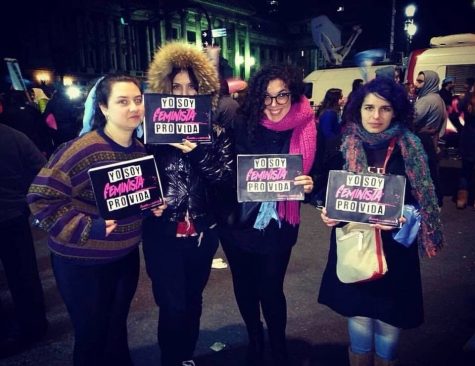
The intersection between feminism and abortion rights are understandably ambiguous. And the spectrum for those values is broad and varied. Those who willingly occupy the space in the middle might be able to serve as guides for inclusivity and respect. Herndon De La Rosa said, “You get to have different opinions. That’s the beauty of women. We could have opinions, talk about these things, and find places to work together. I may have just been really lucky, but I find a lot of people where we’re able to have these civil discussions.”
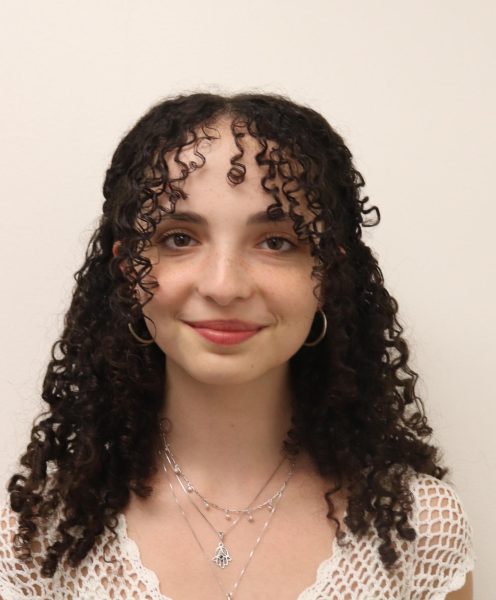
Eliza is a senior and the Editor in Chief of Spyglass this year. This is her fifth year on staff and her third year as an editor. Outside of Spyglass,...




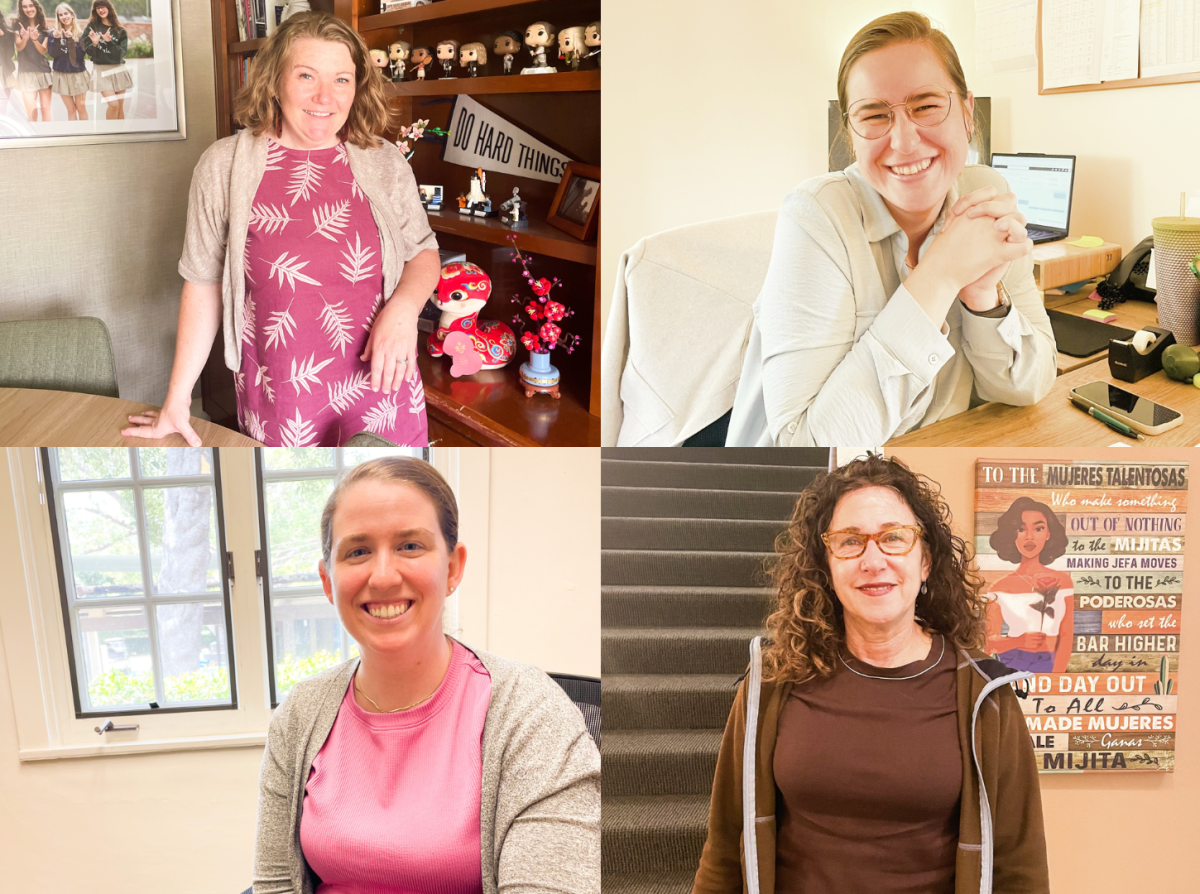
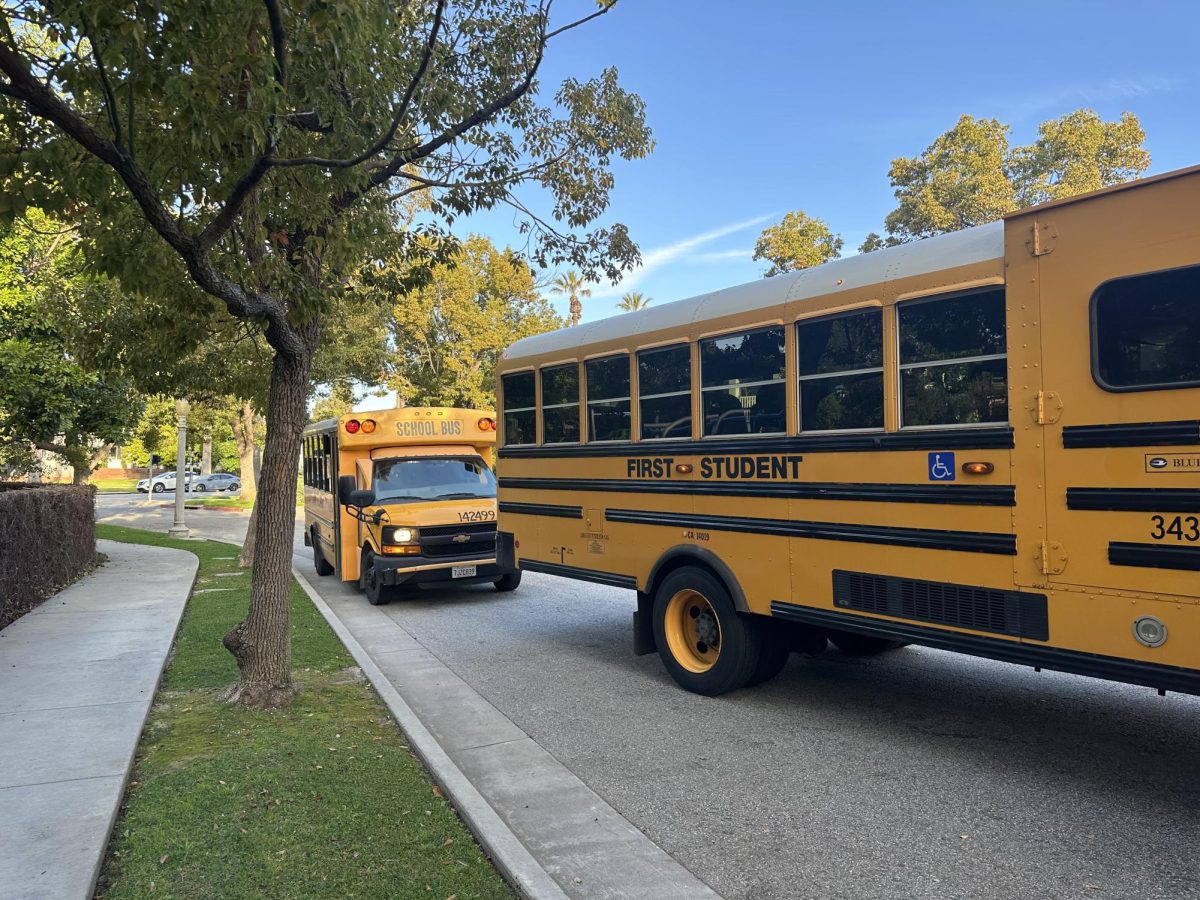


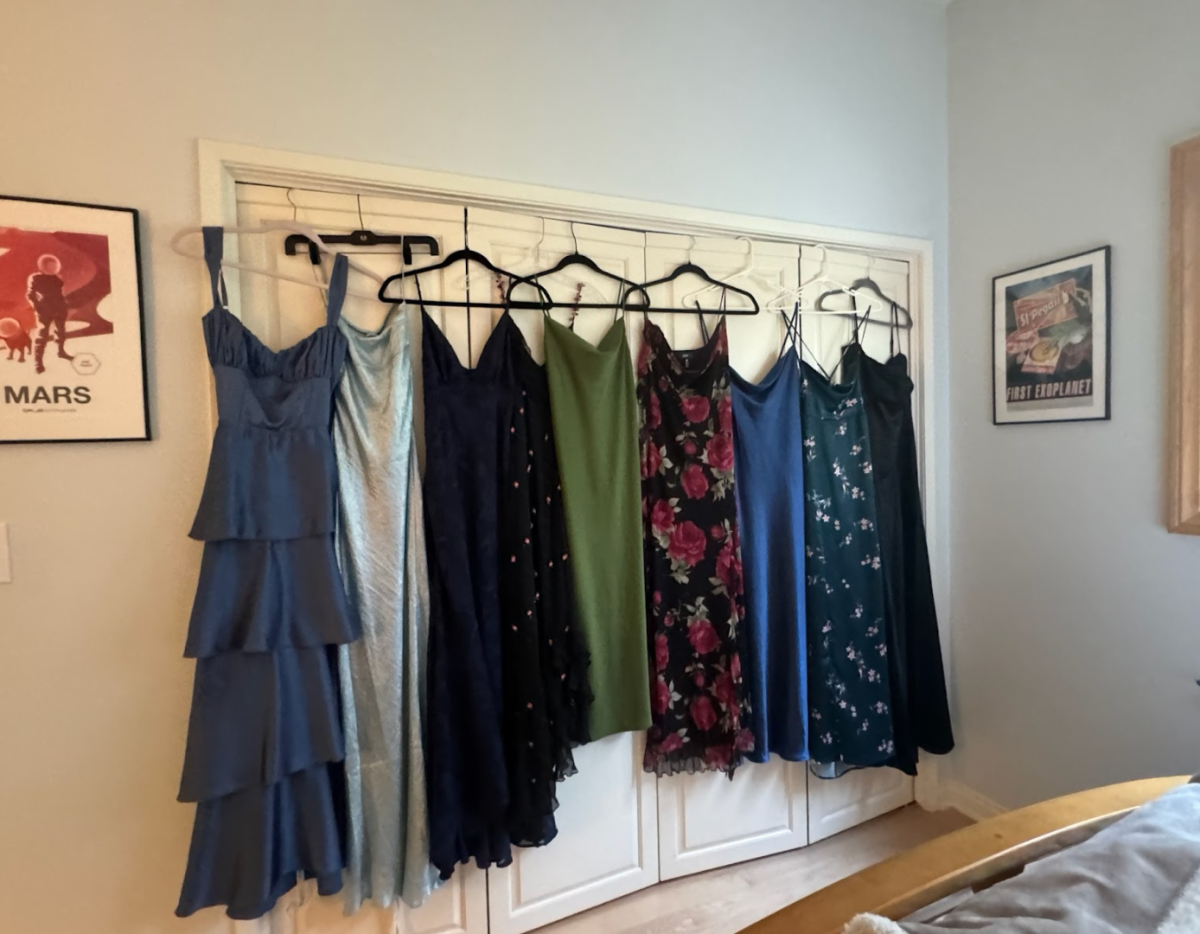








![Dr. Zanita Kelly, Director of Lower and Middle School, pictured above, and the rest of Westridge Administration were instrumental to providing Westridge faculty and staff the support they needed after the Eaton fire. "[Teachers] are part of the community," said Dr. Kelly. "Just like our families and students."](https://westridgespyglass.org/wp-content/uploads/2025/03/dr.-kellyyy-1-e1748143600809.png)








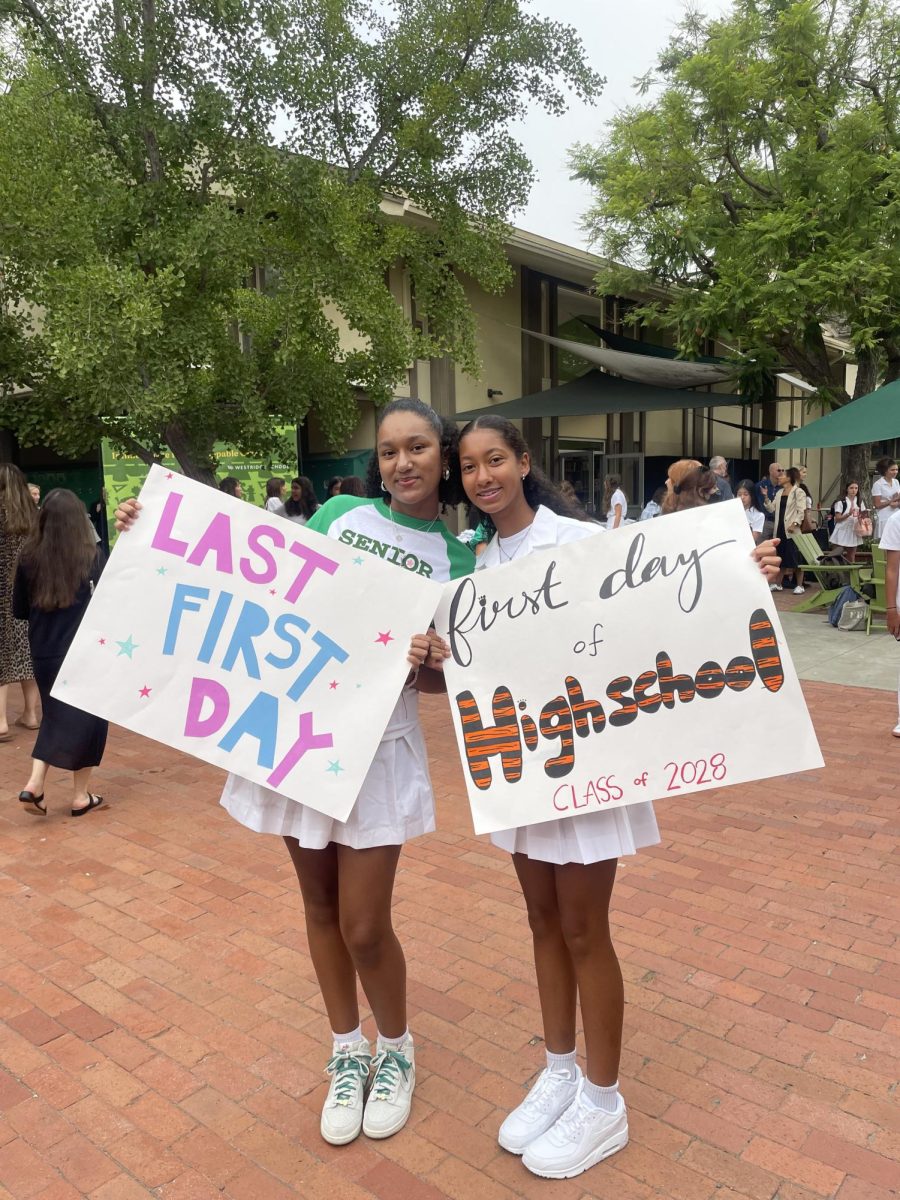













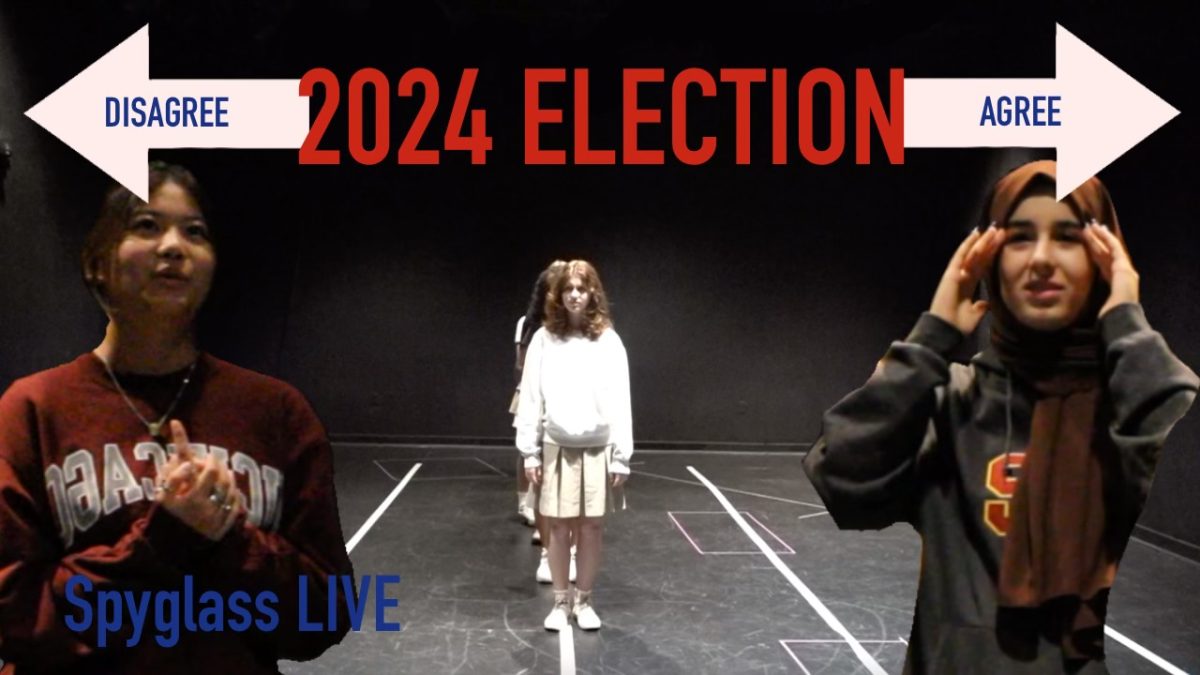






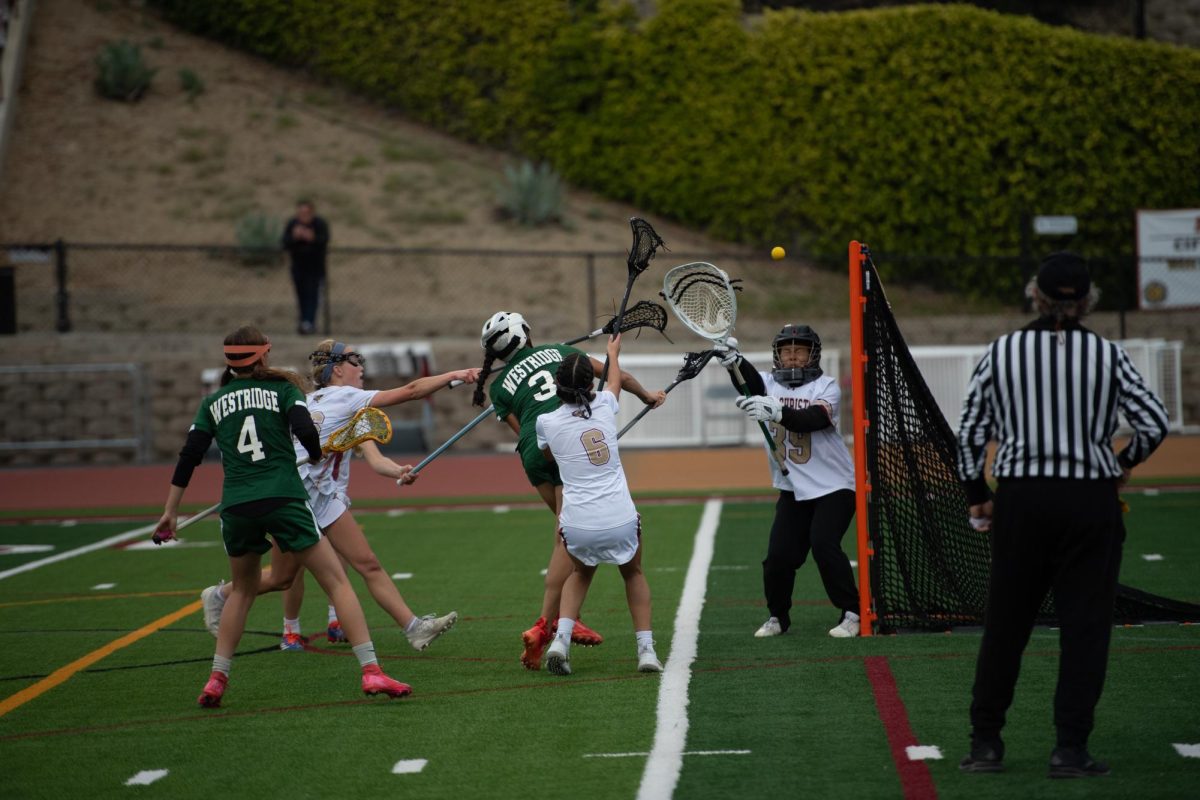







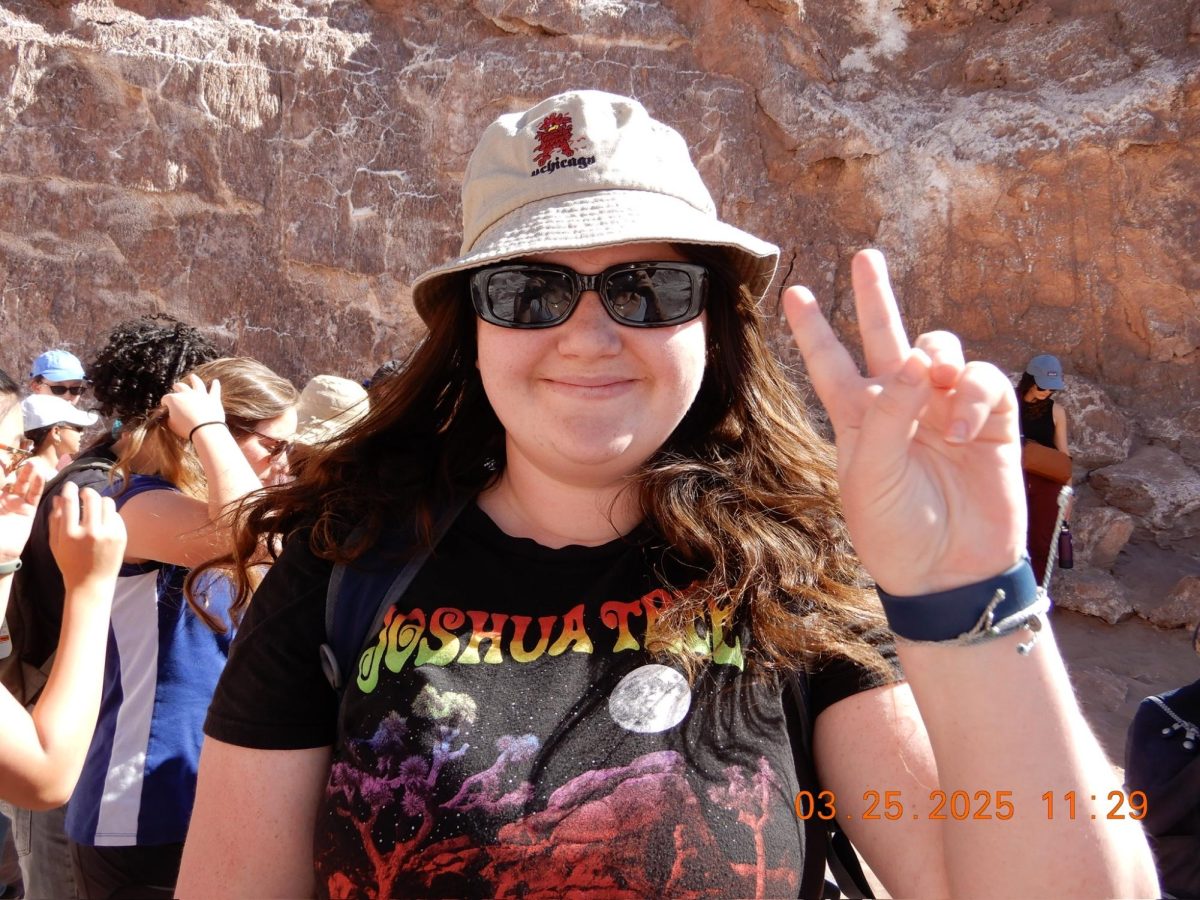





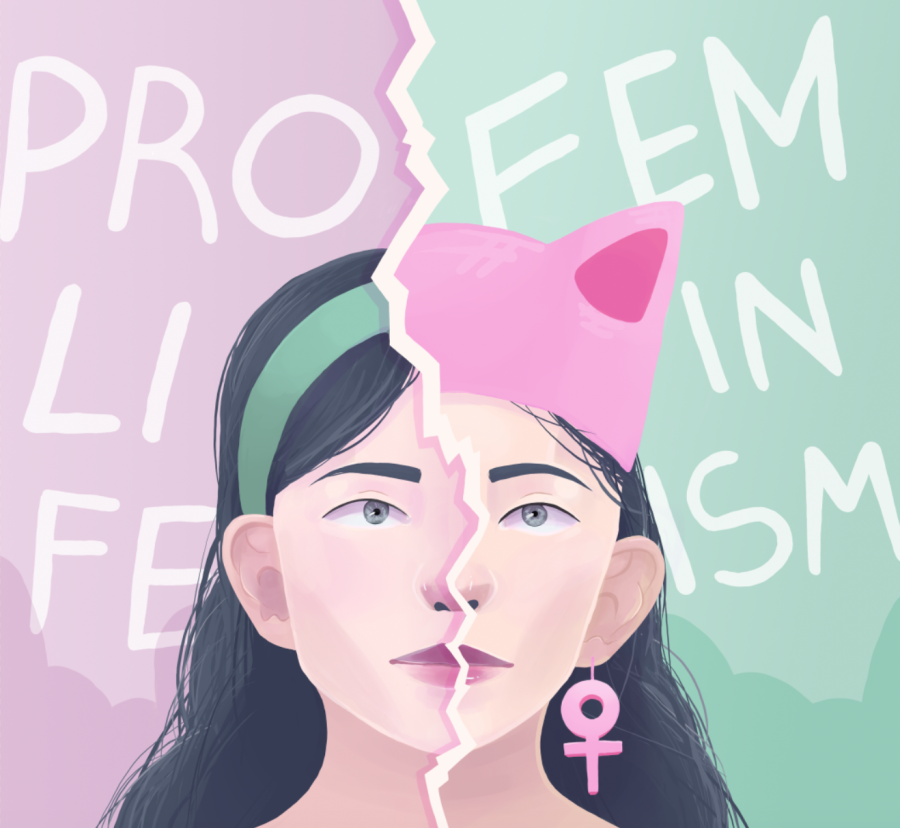


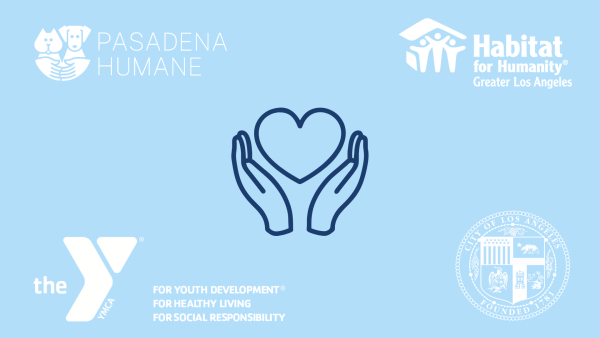
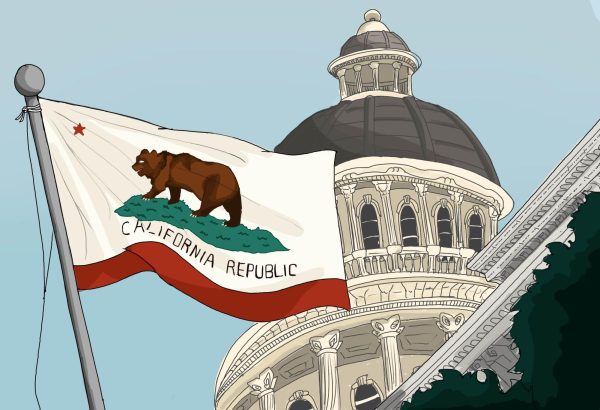
Ava • Jun 25, 2022 at 6:49 am
You literally cannot be a pro life feminist. this is such bullshit